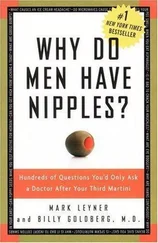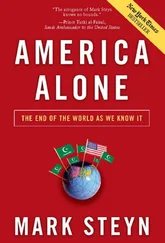By 1788, Louis XVI’s government in France was spending a mere 60 percent of revenues on debt service, and we know how that worked out for the House of Bourbon shortly thereafter. 11
So take your eye off the far prospect, and instead look about fourteen inches in front of your toecap. Within a decade, the United States will be spending more of the federal budget on its interest payments than on its military. You read that right: more on debt service than on the armed services.
According to the CBO’s 2010 long-term budget outlook, by 2020 the government will be paying between 15 and 20 percent of its revenues in debt interest. 12Whereas defense spending will be down to between 14 and 16 percent.
Just to clarify: we’re not talking about paying down the federal debt, just keeping up with the annual interest charges on it. Yet within a decade the United States will be paying more in interest payments than it pays for the military—and that’s not because the Pentagon is such a great bargain. In 2009, the United States accounted for over 43 percent of the world’s military expenditures. 13So America will be spending more on debt interest than China, Britain, France, Russia, Japan, Germany, Saudi Arabia, India, Italy, South Korea, Brazil, Canada, Australia, Spain, Turkey, and Israel spend on their militaries combined . The superpower will have evolved from a nation of aircraft carriers to a nation of debt carriers. The CBO numbers foresee net interest payments rising from 9 percent of revenue to 36 percent in 2030, then to 58 percent in 2040, and up to 85 percent in 2050. 14If that trajectory holds, we’ll be spending more than the planet’s entire military budget on debt interest.
But forget mid-century—because, unless something changes, whatever goes by the name of “America” under those conditions isn’t worth talking about.
By 2010, about half our debt was owned by foreigners, and somewhere over a quarter of that was held by the Chinese (officially). 15
What does that mean? In 2010, the U.S. spent about $663 billion on its military, China about $78 billion. 16If the People’s Republic carries on buying American debt at the rate it has in recent times, then within a few years U.S. interest payments on that debt will be covering the entire cost of the Chinese armed forces. In 2010, the Pentagon issued an alarming report to Congress on Beijing’s massive military build-up, including new missiles, upgraded bombers, and an aircraft carrier research and development program intended to challenge U.S. dominance in the Pacific. What the report didn’t mention is who’s paying for it. 17
Answer: Mr. and Mrs. America.
To return to the president’s declared strategy: “We’ve got a big hole that we’re digging ourselves out of.” Every politician’s First Rule of Holes used to be: When you’re in one, stop digging. If you don’t, as every child knows, eventually you dig so deep you come out on the other side of the world—someplace like, oh, China. By 2015 or so, the People’s Liberation Army, which is the largest employer on the planet, bigger even than the U.S. Department of Community-Organizer Grant Applications, will be entirely funded by U.S. taxpayers. 18As Bugs Bunny is wont to say when his tunnel comes out somewhere unexpected: “I musta took a wrong turn at Albuquerque.” Indeed. When the Commies take Taiwan, suburban families in Albuquerque and small businesses in Pocatello will have paid for it.
And even that startling scenario is premised on the most optimistic assumptions—of resumed economic growth but continued low interest rates. If interest rates were to return to, say, 5.7 percent (the average for the period 1990–2010), the debt service projections for 2015 would increase from $290 billion to $847 billion. 19China would be in a position to quadruple its military budget and stick U.S. taxpayers with the bill.
The existential questions for America loom not decades hence, but right now. It is not that we are on a luge ride to oblivion but that the prevailing political realities of the United States do not allow for any meaningful course correction. And, without meaningful course correction, America is doomed.
It starts with the money. It always does. P. G. Wodehouse fans will recall the passage in Right Ho, Jeeves in which Bertie Wooster’s uncle, like many Americans today, is much preoccupied by the Exchequer’s claim upon him:
“Is he still upset about that income-tax money?” asks Bertie.
“Upset is right,” replies Aunt Dahlia. “He says that Civilization is in the melting-pot and that all thinking men can read the writing on the wall.”
“What wall?”
“Old Testament, ass,” snaps Aunt Dahlia. “Belshazzar’s feast.”
“Oh, that, yes,” says Bertie. “I’ve often wondered how that gag was worked. With mirrors, I expect.”
The gag with mirrors comes from the Book of Daniel: Babylon’s king throws a wild party and, in the midst of his drunkenness, toasts the gods of gold, silver, and various other commodities. No sooner has he done so than the writing appears on the wall, spelling out with disembodied fingers “mene mene, tekel, upharsin.” They’re currency units: half-dollar, half-dollar, penny, and two bits. But what does it mean? None of the A-list seers Belshazzar keeps on the payroll has a clue what it portends, so the King calls in Daniel the Jew to explain things, which he does, very bluntly:
Mene: “God hath numbered thy kingdom, and finished it.”
Tekel: “Thou art weighed in the balances, and art found wanting.”
Upharsin: “Thy kingdom is divided, and given to the Medes and Persians.”
Within twenty-four hours, Belshazzar is slain and Darius the Mede is king.
Today, the units are larger than in Babylon: “Mene mene, tekel, upharsin” is now trillion trillion, billion, half-trillion. But the upshot’s the same.
We’ve spent too much of tomorrow today—to the point where we’ve run out of tomorrow: fiscally, our days are numbered; structurally, we’ve been weighed in the balances and found wanting; and geopolitically, the Medes are thin on the ground but the Persians have gone nuclear.

MENE MENE…
So, if the deficits are “unsustainable,” then what happens when they can no longer be sustained? A failure of bond auctions? A downgraded government debt rating? Reduced GDP growth? Total societal collapse?
Mad Max on the New Jersey Turnpike?
Testifying to the House Budget Committee in 2010, CBO chief Douglas Elmendorf attempted to pull back from the wilder shores of “unsustainable”: “I think most observers expect that the government will act, that the unsustainability will be resolved through action, not through witnessing some collapse down the road,” he told the political grandees. “If literally nothing is done, then eventually something very, very bad happens. But I think the widespread view is that you and your colleagues will take action.” 20
Dream on, you kinky fantasist. If that’s your deus ex machina , bet on Mad Max. As an example of the “action” being contemplated, Obama’s Debt Commission produced a report melodramatically titled “The Moment of Truth”—and then proposed such “actions” as raising the age of Social Security eligibility to sixty-nine. 21
By the year 2075.
As that “solution” suggests, the real problem is that over the last three-quarters of a century the United States has adopted a form of government all but impervious to reality. Come alternate Novembers, the American people have a choice between a fellow running on fluffy abstract nouns—“hope,” “change,” “generic gaseous uplift”—and a fellow promising small government. That’s a best case scenario, by the way. Sometimes, as in 2008, you find yourself choosing between a candidate promising to guarantee the mortgages of people who “bought” houses they and their banks knew they couldn’t afford, and a candidate promising to give “tax cuts” to millions of people who pay no taxes. But, assuming you did get a genuine choice, what is the net result of these two starkly different platforms?
Читать дальше












